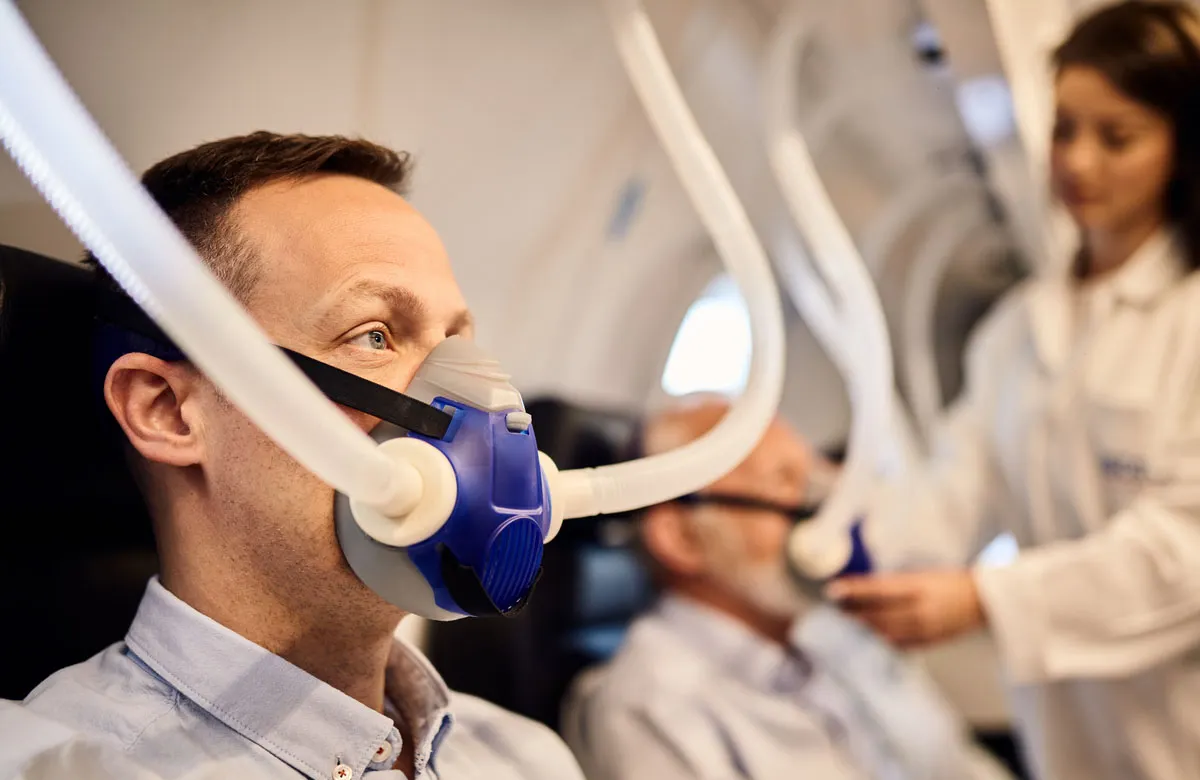Hyperbaric oxygen therapy shows improvement of PTSD in veterans: study

A groundbreaking new approach to treating post-traumatic stress disorder (PTSD) is making waves in clinical trials. Hyperbaric oxygen therapy (HBOT), typically used to treat physical health conditions, has shown promise in alleviating mental health conditions, specifically combat-associated PTSD (CA-PTSD) in military veterans.
Researchers in Israel conducted a study, published in The Journal of Clinical Psychiatry, that analyzed 63 veterans from 2020 to 2023 who underwent randomized treatment with HBOT. The results were promising, with the group of veterans who received HBOT showing a significant decrease in PTSD symptoms. In fact, 68% of respondents reported improvement in their symptoms.
The researchers concluded that a dedicated HBOT protocol could improve PTSD symptoms in veterans with CA-PTSD. This is a significant finding, as PTSD is a major issue affecting many veterans, with symptoms such as flashbacks, poor sleep, anxiety, and other disruptions.
Dr. Marc Siegel, a Fox News senior medical analyst, discussed the findings on “Fox & Friends,” noting that while some experts believe it’s still early to fully embrace this treatment, the brain often shows signs of oxygen deprivation in patients with PTSD. This suggests that replenishing oxygen through HBOT could be a promising avenue for treatment.
PTSD is a widespread issue among veterans, with nearly 20% of those who served in Iraq and Afghanistan showing symptoms. These symptoms can take time to manifest, making it crucial to find effective treatments. HBOT offers new hope as a potential universal treatment for PTSD, supplementing traditional therapies like therapy and antidepressants.
Dr. Keren Doenyas-Barak, head of the PTSD program at Israel’s Sagol Center for Hyperbaric Medicine and Research, emphasized that PTSD is often viewed as a psychological condition but recent imaging techniques have shown long-term changes in brain activity and structure associated with the disorder. HBOT may target and recruit malfunctioning brain regions, addressing core symptoms of PTSD such as nightmares and flashbacks.
The study demonstrated a significant therapeutic effect in veterans who had not responded to traditional treatments like psychotherapy or medications. This treatment is now available to Israeli veterans with support from the Ministry of Defense, offering new hope to those struggling with debilitating symptoms.
In conclusion, HBOT represents a promising new approach to treating PTSD, particularly in military veterans with combat-associated PTSD. The findings of this study offer hope for improved outcomes and quality of life for those suffering from this debilitating condition.




